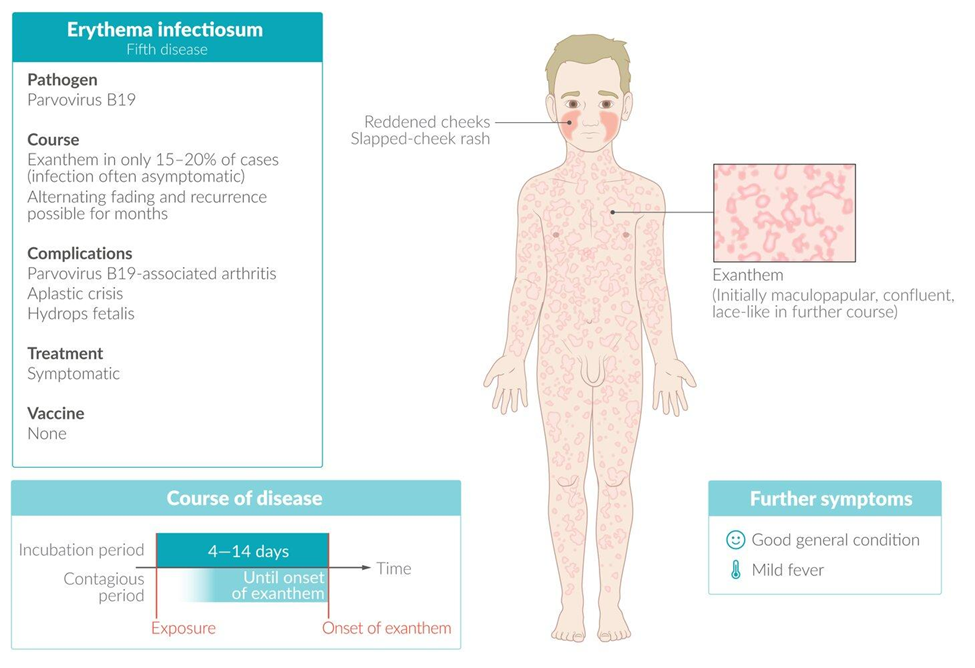A nurse is preparing to administer digoxin to a 6-month-old infant. Prior to administering the dose, the nurse measures the apical heart rate. The nurse should withhold the dose if the infant's apical heart rate is less than what rate?
The Correct Answer is ["90"]
The nurse should withhold the dose if the infant's apical heart rate is less than 90 beats per minute.
Digoxin is a medication that can slow the heart rate. If an infant's heart rate is already too slow, administering digoxin can increase the risk of bradycardia, a serious heart rhythm disturbance.
It's important to monitor the apical heart rate for a full minute before administering digoxin to an infant and to withhold the dose if the heart rate is below the specified threshold.
Nursing Test Bank
Naxlex Comprehensive Predictor Exams
Related Questions
Correct Answer is C
Explanation
A. A highly pruritic profuse macule to papule rash on the trunk
Explanation: This description does not fit the typical characteristics of erythema infectiosum. Fifth disease is not typically associated with a highly pruritic rash.
B. A discrete pinkish red maculopapular rash that is spreading to the trunk
Explanation: While erythema infectiosum does involve a rash that can spread to the trunk, the distinctive "slapped face" appearance is a key characteristic that is not captured in this option.
C. An erythema on the face that has a "slapped face" appearance.
Explanation:
Erythema infectiosum, commonly known as fifth disease or slapped cheek syndrome, is characterized by a distinctive facial rash that gives the appearance of a "slapped face." The rash typically starts on the face and then spreads to the trunk and extremities. It often begins with erythema on the cheeks, giving the child a flushed or slapped appearance, followed by a discrete rose-pink maculopapular rash on the trunk.
D. A discrete rose-pink maculopapular rash on the trunk
Explanation: This description fits the typical characteristics of the rash seen in erythema infectiosum, but the key identifier is the "slapped face" appearance on the face.

Correct Answer is D
Explanation
A. "Limit your caloric intake to avoid becoming overweight."
Explanation: This statement emphasizes the importance of maintaining a healthy weight through balanced nutrition and avoiding excessive caloric intake. It promotes the prevention of overweight and obesity.
B. "Tanning beds are much safer than lying in the sun."
Explanation: This statement is incorrect. Tanning beds are not safer than natural sunlight and are associated with an increased risk of skin cancer. Adolescents should be advised to protect their skin from harmful UV radiation.
C. "Share piercing needles only with close friends you trust."
Explanation: This statement is unsafe and promotes risky behavior. Sharing piercing needles can lead to the transmission of bloodborne infections such as HIV and hepatitis. The nurse should emphasize the importance of using sterile needles and avoiding risky behaviors.
D. "Your need for sleep will increase during periods of growth."
Explanation:
During periods of growth, adolescents often experience increased physical and hormonal changes, and adequate sleep is crucial for overall health and well-being. Sleep plays a vital role in growth, immune function, and cognitive performance. Adolescents should be encouraged to prioritize getting sufficient sleep for their age group.
Whether you are a student looking to ace your exams or a practicing nurse seeking to enhance your expertise , our nursing education contents will empower you with the confidence and competence to make a difference in the lives of patients and become a respected leader in the healthcare field.
Visit Naxlex, invest in your future and unlock endless possibilities with our unparalleled nursing education contents today
Report Wrong Answer on the Current Question
Do you disagree with the answer? If yes, what is your expected answer? Explain.
Kindly be descriptive with the issue you are facing.
